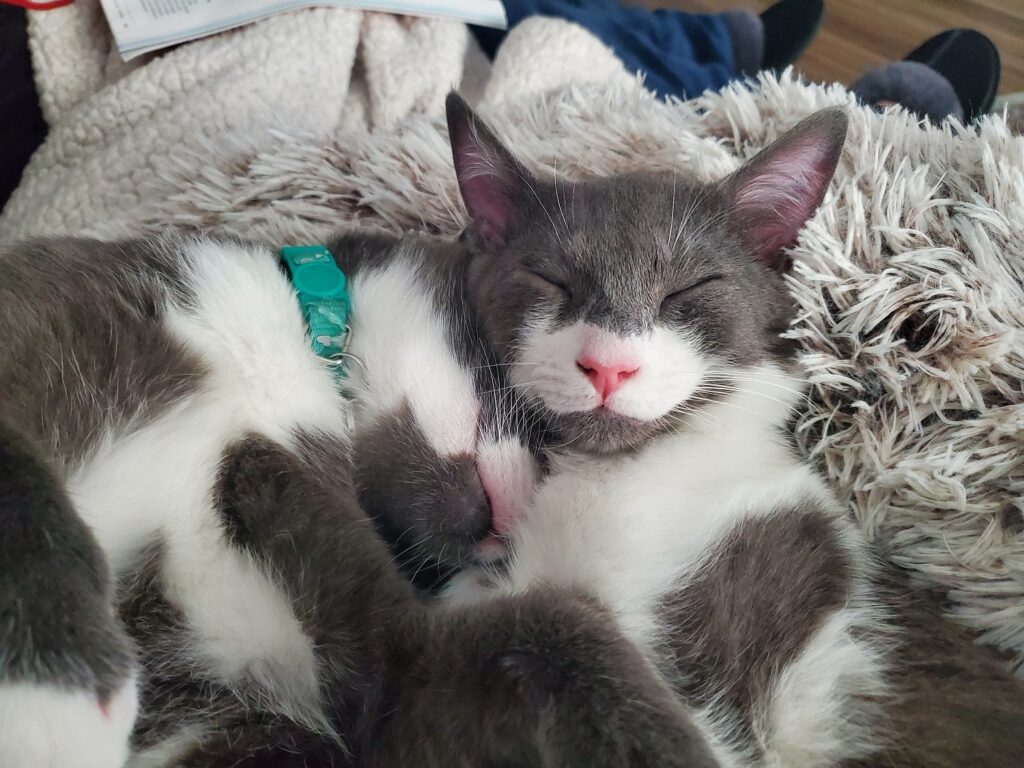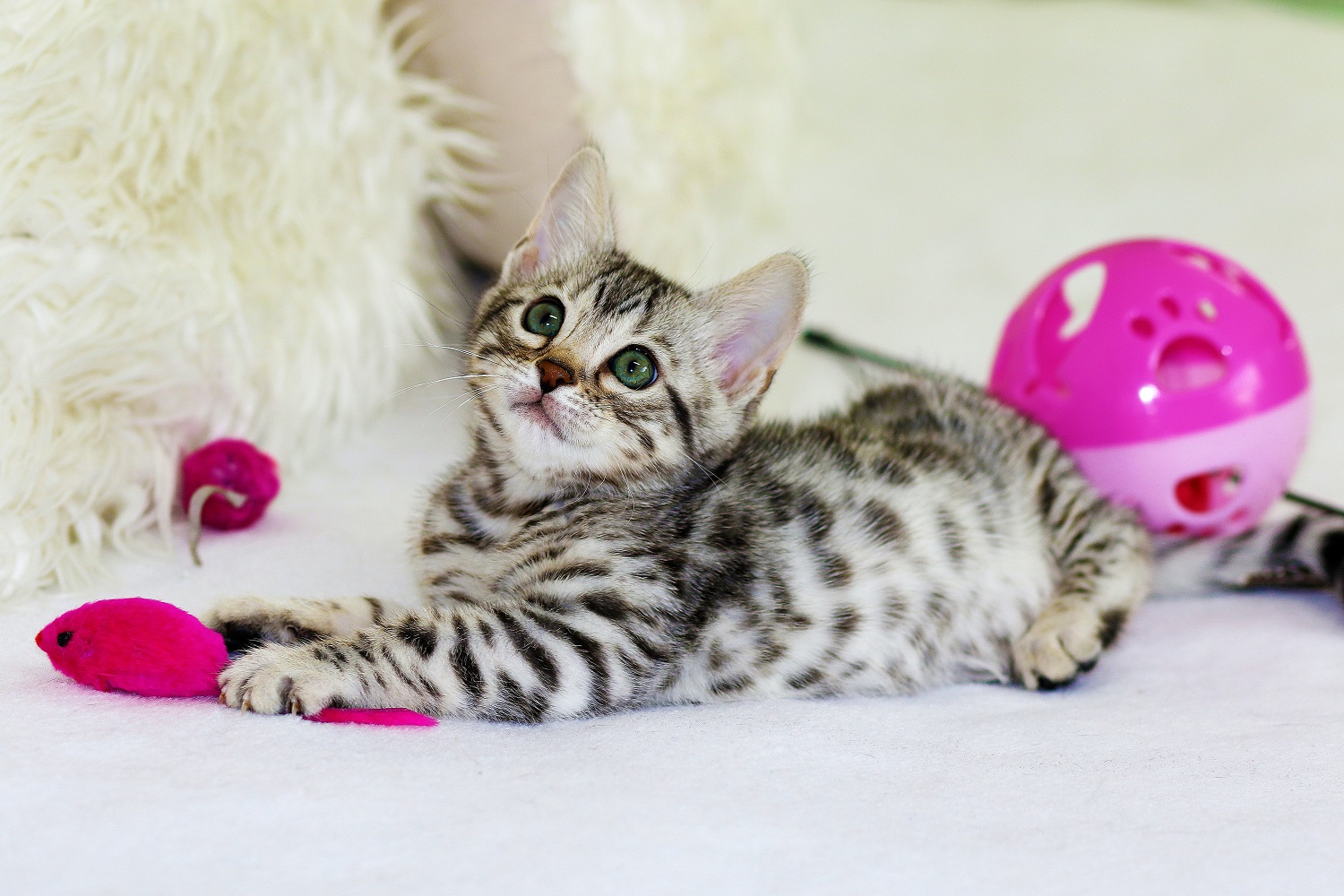Kittens are tiny chaos machines with fur. One minute they are bouncing off the walls, and the next they are passed out in a sunbeam like nothing ever happened. If you have ever tried to keep up with a kitten during playtime, you know they seem to run on an invisible energy drink and then crash without warning.
So how long do kittens play before they get tired? It depends on their age, personality, and environment. But one thing is certain: play is essential for a kitten’s development, and understanding their limits helps keep them happy and healthy.
The Role of Play in Kitten Development
Play is not just entertainment for kittens. It is how they learn essential life skills. From coordination and balance to social interaction and hunting instincts, everything your kitten needs to grow into a confident adult cat starts with play.
Kittens play to develop:
- Motor skills
- Bite and claw control
- Social boundaries with other pets
- Confidence in new environments
- Problem-solving through interactive toys
Every time they pounce, chase, or wrestle, their brain and body are learning something important.
Typical Playtime Duration by Age
Kittens do not have a one-size-fits-all play schedule. Like kids, their energy levels vary based on age and individual personality. But here is a general idea of how long most kittens play before they need a break.
4 to 8 weeks old
At this stage, play is short and sweet. Kittens are just learning to balance and interact with their littermates. Expect a few minutes of wobbly play at a time, followed by long naps.
8 to 12 weeks old
Now the energy ramps up. These kittens can play in short bursts for 10 to 15 minutes before tiring out. They will often wake up, play, eat, nap, and repeat in cycles throughout the day.
3 to 6 months old
You are entering the peak zoomie phase. These kittens can stay engaged in play for 15 to 30 minutes at a time, especially if they are chasing toys or playing with another cat.
6 months and up
Older kittens begin to develop longer attention spans. Some can handle 30 minutes or more of interactive play if it is paced well. After that, they usually flop down like someone pulled their batteries.
The key is to let them take breaks. You should never force a kitten to keep playing once they start slowing down or showing signs of fatigue.
How to Tell When Your Kitten Is Getting Tired
Kittens are not shy about expressing themselves, but sometimes they push past their limits during play. Here are signs your kitten is ready for a nap:
- They stop chasing toys and flop over
- Their movements become slower or less coordinated
- They walk away or hide behind furniture
- Their tail flicking slows down or stops
- They start grooming themselves or curl into a ball
If you notice these signs, give your kitten a chance to rest. They might just need a quick recharge before round two.

Who says that chasing toys, climbing on things, and pouncing on unsuspecting feet will wear us out? Our humans are no match for our boundless energy. Sometimes they say we need a nap but we never get tired! We’re just going to close our eyes for a minute… #NoNaps #NapsAreForBabies #DoingKittyStuffIsHard
Winston and Joey
How Often Should You Play with Your Kitten?
Most kittens benefit from multiple play sessions each day. Think of it as a workout routine for their brain and body. The frequency is often more important than duration.
Try to fit in two to four sessions daily, each lasting 10 to 20 minutes depending on your kitten’s age and energy level. Focus on quality, not quantity. One well-paced play session is more valuable than hours of half-hearted toy tossing.
Best Types of Play for High-Energy Kittens
To make the most of your kitten’s playtime, choose activities that align with their instincts.
- Interactive wand toys mimic prey and keep your kitten engaged
- Puzzle feeders combine food and brainwork for mental stimulation
- Climbing structures and tunnels help them explore safely
- Soft toys or kickers are perfect for solo wrestling matches
Rotate toys regularly to keep things interesting and avoid boredom. Cats are smart. They know when you are just waving the same feather toy again for the third day in a row.
Final Thoughts: Play Hard, Nap Harder
Kittens have big energy in small bodies, and they burn through it in quick bursts. Whether your kitten is in the early bouncy stages or heading toward their teenage months, playtime is one of the best ways to bond, train, and support their healthy development.
Just remember that every kitten is different. Some play more, some nap longer, and some sprint face-first into walls. As long as you are watching their signals and giving them time to rest, you are doing just fine.
Let the zoomies begin.
Sources:
Kitten Behavior and Playtime Needs https://www.petmd.com/cat/behavior/kitten-behavior-guide
How Much Play Do Kittens Need? https://www.humanesociety.org/resources/playing-your-kitten
Kitten Energy Levels by Age https://www.icatcare.org/advice/kitten-development-and-play
Interactive Play for Cats https://vcahospitals.com/know-your-pet/play-and-exercise-for-cats
Recent Posts
Your Cat Might Be a Furry Little Healer… or at Least a Fuzzy Alarm System If you’ve ever had your cat suddenly become extra clingy when you’re under the weather, you’re not alone. From...
Cats are experts at hiding things, socks under furniture, their disdain for your playlist, and, unfortunately, symptoms of illness. In the wild, showing weakness could make them a target, so even...


